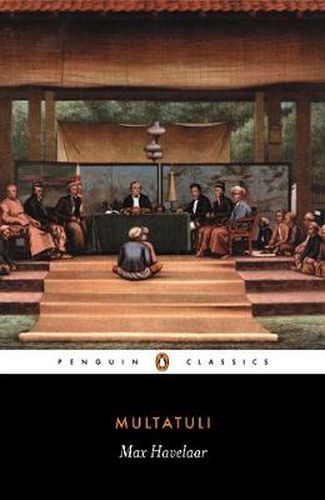Readings Newsletter
Become a Readings Member to make your shopping experience even easier.
Sign in or sign up for free!
You’re not far away from qualifying for FREE standard shipping within Australia
You’ve qualified for FREE standard shipping within Australia
The cart is loading…






Max Havelaar - a Dutch civil servant in Java - burns with an insatiable desire to end the ill treatment and oppression inflicted on the native peoples by the colonial administration. Max is an inspirational figure, but he is also a flawed idealist whose vow to protect the Javanese from cruelty ends in his own downfall. In Max Havelaar, Multatuli (the pseudonym for Eduard Douwes Dekker) vividly recreated his own experiences in Java and tellingly depicts the hypocrisy of those who gained from the corrupt coffee trade. Sending shockwaves through the Dutch nation when it was published in 1860, this damning expose of the terrible conditions in the colonies led to welfare reforms in Java and continues to inspire the fairtrade movement today.
Roy Edwards’s vibrant translation conveys the satirical and innovative style of Multatuli’s autobiographical polemic. In his introduction, R. P. Meijer discusses the author’s tempestuous life and career, the controversy the novel aroused and its unusual narrative structure.
$9.00 standard shipping within Australia
FREE standard shipping within Australia for orders over $100.00
Express & International shipping calculated at checkout
Stock availability can be subject to change without notice. We recommend calling the shop or contacting our online team to check availability of low stock items. Please see our Shopping Online page for more details.
Max Havelaar - a Dutch civil servant in Java - burns with an insatiable desire to end the ill treatment and oppression inflicted on the native peoples by the colonial administration. Max is an inspirational figure, but he is also a flawed idealist whose vow to protect the Javanese from cruelty ends in his own downfall. In Max Havelaar, Multatuli (the pseudonym for Eduard Douwes Dekker) vividly recreated his own experiences in Java and tellingly depicts the hypocrisy of those who gained from the corrupt coffee trade. Sending shockwaves through the Dutch nation when it was published in 1860, this damning expose of the terrible conditions in the colonies led to welfare reforms in Java and continues to inspire the fairtrade movement today.
Roy Edwards’s vibrant translation conveys the satirical and innovative style of Multatuli’s autobiographical polemic. In his introduction, R. P. Meijer discusses the author’s tempestuous life and career, the controversy the novel aroused and its unusual narrative structure.